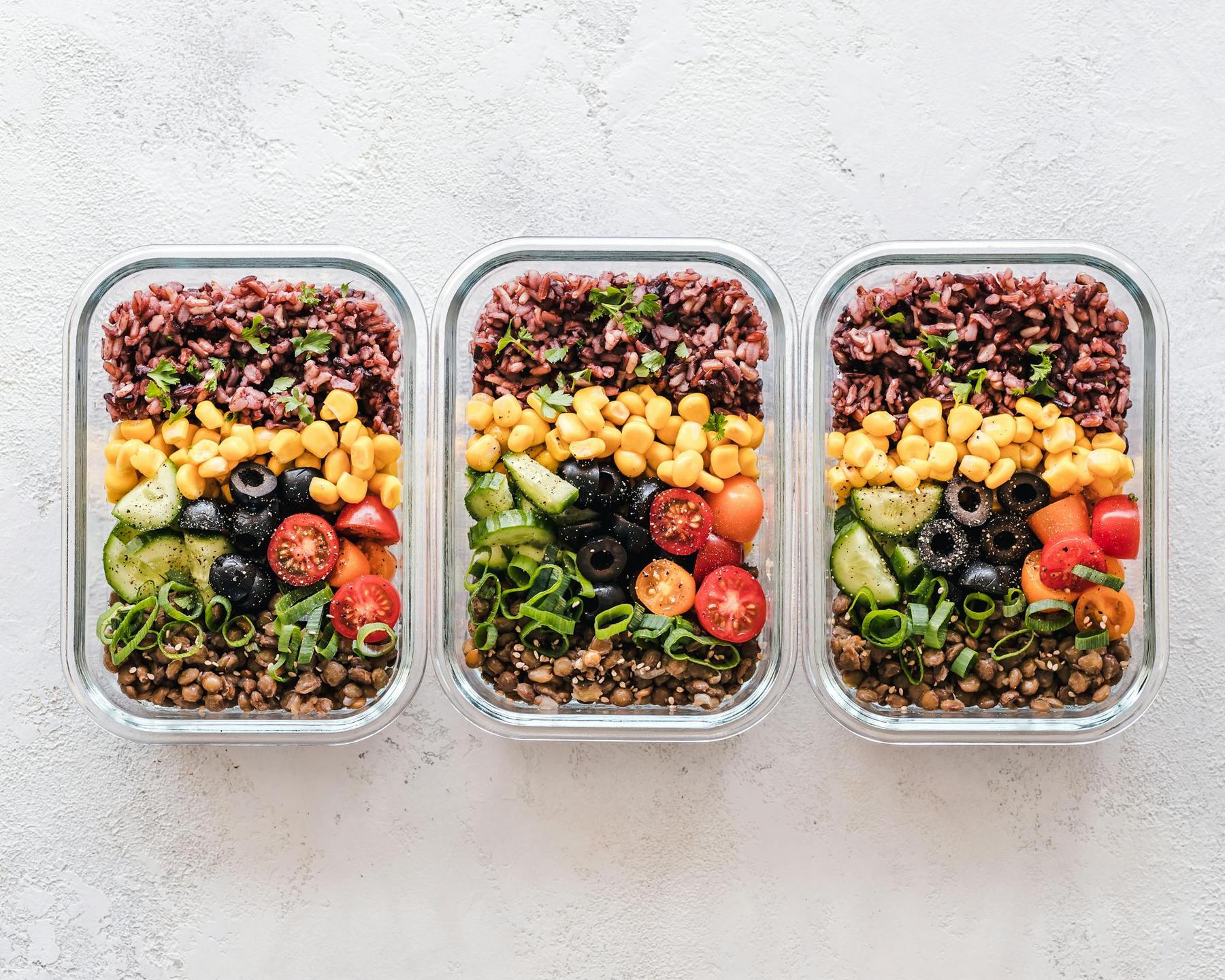The modern Australian lifestyle presents unprecedented challenges to maintaining consistent eating patterns. Between demanding work schedules, family obligations, and the constant availability of convenience foods, millions of Australians find themselves trapped in chaotic eating cycles that undermine their health goals and overall well-being. The consequences extend far beyond simple inconvenience — irregular eating patterns disrupt hormonal balance, compromise metabolic function, and create psychological stress that perpetuates poor food choices.
Research demonstrates that establishing structured weekly meal routines represents one of the most powerful interventions for achieving sustainable health improvements. Unlike restrictive dieting approaches that often fail within months, consistent meal planning addresses the root causes of dietary inconsistency whilst supporting the body’s natural biological rhythms. Clinical studies reveal that individuals who maintain regular eating schedules experience improved blood glucose regulation, enhanced energy stability, and significantly better success rates in weight management programmes.
The integration of systematic meal planning with consistent timing creates a comprehensive framework that addresses both physiological and psychological aspects of eating behaviour. For the estimated 67% of Australian adults who struggle with weight management, building structured meal routines offers a scientifically-supported pathway to achieving lasting improvements in health outcomes whilst reducing the daily stress associated with food-related decisions.
Why Do Meal Routines Impact Your Body’s Natural Systems?
The human body operates on sophisticated internal clocks known as circadian rhythms, which regulate everything from hormone production to metabolic efficiency. These biological timekeepers evolved over millions of years to anticipate regular patterns of food intake, creating optimal conditions for nutrient processing and utilisation.
When we maintain consistent meal timing, our digestive system begins producing enzymes, stomach acid, and bile in anticipation of incoming nutrients. This biological preparation leads to enhanced nutrient absorption, improved digestive comfort, and more efficient metabolic processing. Research indicates that individuals following regular eating schedules achieve 15-20% better nutrient utilisation compared to those with irregular patterns.
The hormonal benefits of consistent meal routines are particularly significant for weight management. Regular eating patterns help stabilise insulin levels throughout the day, preventing the dramatic spikes and drops that promote fat storage. Additionally, the hunger hormone ghrelin and satiety hormone leptin develop predictable cycles when meals occur at consistent times, supporting natural appetite regulation and reducing the likelihood of overeating.
Circadian nutrition research reveals that our metabolism naturally peaks during morning hours, with insulin sensitivity and glucose tolerance being highest early in the day. This biological reality explains why individuals who consume larger meals earlier and lighter meals later typically achieve better health outcomes. Building weekly meal routines that align with these natural rhythms optimises metabolic function whilst supporting sustainable energy levels throughout the day.
The Stress-Reduction Benefits of Meal Structure
Beyond physiological advantages, consistent meal routines provide substantial psychological benefits by reducing decision fatigue and daily stress. The average person makes over 200 food-related decisions daily, from what to eat for breakfast to whether to have that afternoon snack. This constant decision-making creates cognitive burden that can lead to poor choices, particularly during stressful periods.
Structured meal planning eliminates the majority of these daily decisions, freeing mental energy for other important tasks whilst reducing food-related anxiety. Clinical observations indicate that individuals following planned meal routines report significantly lower stress levels and improved overall life satisfaction compared to those making spontaneous food decisions throughout the day.
How Can Strategic Planning Transform Your Weekly Eating Habits?
Effective weekly meal planning requires a systematic approach that balances nutritional requirements, personal preferences, and practical constraints. Research identifies several key principles that distinguish successful meal planning systems from those that are quickly abandoned.
The most sustainable meal planning approaches utilise framework-based thinking rather than rigid menu requirements. Instead of specifying exact meals for each day, successful planners establish general patterns and principles that provide structure whilst allowing flexibility. For example, designating Monday as “lean protein with vegetables” provides guidance without restricting specific ingredients or preparation methods.
Theme-based meal planning represents another evidence-supported strategy that simplifies decision-making whilst maintaining variety. Themes such as “Meatless Monday” or “Sheet Pan Sunday” create predictable patterns that reduce planning time whilst encouraging culinary creativity within each category. This approach has been shown to improve long-term adherence rates compared to completely open-ended planning approaches.
Strategic Ingredient Management and Batch Preparation
Efficient meal planning incorporates strategic ingredient overlap to minimise shopping complexity whilst maximising nutritional value. By selecting meals that share common ingredients, planners reduce food waste, simplify grocery shopping, and often achieve significant cost savings. This approach also streamlines meal preparation by allowing ingredients to be processed once and utilised across multiple meals throughout the week.
Batch preparation strategies offer another powerful tool for transforming weekly eating habits. Research demonstrates that dedicating 1-3 hours to advance preparation can reduce daily cooking time by 60-80% whilst improving adherence to planned menus. This concentrated preparation approach includes washing and chopping vegetables, cooking grains, preparing proteins, and assembling complete meals that can be portioned and stored.
The strategic use of freezer storage extends meal preparation benefits beyond a single week, creating a reserve of healthy options for particularly busy periods. Having prepared meal components readily available reduces reliance on convenience foods and takeaway options during stressful times when following planned routines becomes challenging.
| Meal Planning Approach | Weekly Time Investment | Daily Time Saved | Adherence Rate |
|---|---|---|---|
| No planning | 0 hours | 0 minutes | N/A |
| Basic weekly planning | 30-60 minutes | 15-20 minutes | 65-70% |
| Advanced batch preparation | 2-3 hours | 30-45 minutes | 85-90% |
| Professional meal service | 15 minutes | 40-50 minutes | 90-95% |
What Are the Most Effective Implementation Strategies?
Successfully implementing consistent meal routines requires attention to both practical systems and behavioural psychology principles. Research indicates that sustainable habit formation occurs most effectively when new behaviours are attached to existing routines and when the environment is structured to support desired actions.
The most successful meal planners typically integrate planning activities into established weekly routines, such as conducting menu planning immediately after grocery shopping or as part of Sunday evening preparation activities. This attachment to existing habits leverages established behavioural patterns whilst reducing the cognitive effort required to maintain new practices.
Environmental design plays a crucial role in supporting consistent meal routines. Individuals who organise their kitchens to facilitate efficient meal preparation, keep planning materials in designated locations, and post meal plans in visible areas demonstrate significantly higher adherence rates compared to those without environmental supports.
Building Flexibility Into Routine Structures
Sustainable meal routine systems balance structure with adaptability, allowing for spontaneous adjustments whilst maintaining core beneficial elements. Research demonstrates that individuals who prepare for potential disruptions through backup meal options and simplified preparation alternatives are more likely to maintain consistent eating patterns over extended periods.
The concept of “minimum viable routines” provides a valuable framework for maintaining consistency during challenging periods. These simplified versions of full meal planning systems allow individuals to preserve beneficial habits even when they cannot implement complete programmes. Minimum viable approaches might involve basic meal themes, emergency meal options, or reduced preparation requirements whilst maintaining regular eating timing.
Implementation intentions, or specific if-then plans for handling challenging situations, significantly improve long-term sustainability. Individuals who predetermine responses to common obstacles such as schedule disruptions, ingredient availability issues, or energy fluctuations demonstrate superior consistency compared to those without contingency planning.
How Do You Overcome Common Challenges and Maintain Consistency?
Every individual attempting to establish consistent meal routines will encounter obstacles that test their commitment and adaptability. Research identifies several predictable challenges along with evidence-based strategies for addressing these difficulties effectively.
Time constraints represent the most frequently cited barrier to successful meal planning. However, detailed time-motion studies reveal that effective meal planning typically saves time over the long term by reducing daily decision-making requirements and streamlining shopping and preparation processes. The perceived time burden often exceeds actual requirements, with successful meal planning requiring just 30-60 minutes of weekly planning time and 1-3 hours of preparation, depending on chosen approaches.
Motivation naturally fluctuates over time, and sustainable systems must account for periods of reduced enthusiasm or energy. External accountability systems, whether through family members, friends, or healthcare providers, provide crucial support during challenging periods. Individuals who share their meal planning goals with supportive others demonstrate consistently better long-term adherence compared to those attempting to maintain routines independently.
Adapting Systems to Life Changes
Life circumstances inevitably change, requiring meal planning systems that can evolve whilst preserving core benefits. The development of modular systems with interchangeable components allows for adaptation to changes in family size, work schedules, living situations, or health requirements without abandoning entire frameworks.
Seasonal adaptation strategies help maintain engagement with meal planning whilst accommodating natural changes in food preferences and ingredient availability. Systems that incorporate seasonal variations often feel more natural and sustainable than rigid year-round approaches, supporting long-term consistency through natural variety cycles.
Professional support from registered dietitians, health coaches, or structured programmes can provide expert guidance and accountability, particularly during initial establishment phases or periods of significant life change. Research indicates that professional support significantly improves both initial success rates and long-term maintenance of healthy eating patterns.
Creating Your Personalised Weekly Framework
The transition from understanding meal routine principles to implementing personalised systems requires careful consideration of individual circumstances, preferences, and goals. Successful implementation begins with an honest assessment of current eating patterns, available time resources, cooking skills, and household dynamics.
Start by establishing core eating times that align with your natural schedule and biological rhythms. Research supports eating patterns that include substantial morning meals, moderate midday nutrition, and lighter evening options, with consistent timing across days. This foundation provides structure whilst allowing flexibility in specific food choices and preparation methods.
Develop a repertoire of reliable, preferred meals that can be rotated regularly. Successful long-term meal planners typically maintain collections of 20-30 preferred meals, providing adequate variety whilst minimising planning effort. This repertoire should include options for different preparation time requirements, seasonal ingredient availability, and varying energy levels.
Consider your household dynamics and involve family members or housemates in planning processes where appropriate. Research demonstrates that shared responsibility for meal planning improves both practical outcomes and social satisfaction with eating experiences. Even simple involvement, such as input on meal preferences or assistance with preparation tasks, can significantly enhance system sustainability.
The evidence overwhelmingly supports building weekly meal routines as a fundamental strategy for achieving improved health outcomes and enhanced well-being. Research across multiple disciplines demonstrates that structured meal planning provides benefits extending far beyond simple nutrition, encompassing physiological optimisation, psychological well-being, and behavioural sustainability. The integration of consistent eating patterns with systematic planning creates powerful frameworks that support both immediate improvements and long-term health goals.
For individuals seeking comprehensive support in developing sustainable eating patterns, professional guidance can provide invaluable assistance in creating personalised systems that align with health objectives whilst fitting practical life requirements. The combination of evidence-based meal planning principles with expert support creates optimal conditions for achieving lasting improvements in health and well-being.
How long does it typically take to establish a consistent weekly meal routine?
Research indicates that basic meal routine habits typically require 3-4 weeks to feel natural, whilst comprehensive planning systems may take 6-8 weeks to become fully integrated into weekly schedules. Individual variation occurs based on current eating patterns, household complexity, and consistency of implementation efforts.
What are the minimum time requirements for effective weekly meal planning?
Studies demonstrate that effective meal planning requires approximately 30-60 minutes of weekly planning time plus 1-3 hours of preparation, depending on chosen strategies. This investment typically results in 15-45 minutes of daily time savings whilst improving food quality and reducing stress.
How can shift workers or people with irregular schedules maintain meal routine consistency?
Irregular schedules require modified approaches focusing on consistent meal intervals rather than specific times. Research supports maintaining 3-4 hour intervals between meals regardless of clock time, along with portable meal options and flexible preparation strategies that accommodate varying schedules.
What role does meal timing play in weight management outcomes?
Clinical studies demonstrate that consistent meal timing significantly improves weight management success through enhanced blood glucose regulation, optimised hormonal patterns, and reduced likelihood of impulsive eating behaviours. Individuals following regular eating schedules typically achieve 20-30% better weight management outcomes compared to those with irregular patterns.
Can meal planning systems accommodate dietary restrictions or food allergies?
Yes, systematic meal planning simplifies the management of dietary restrictions by ensuring careful ingredient selection and preparation methods. Planning approaches can be adapted to accommodate any dietary requirements whilst maintaining nutritional balance and meal variety through strategic substitutions and specialised preparation techniques.



